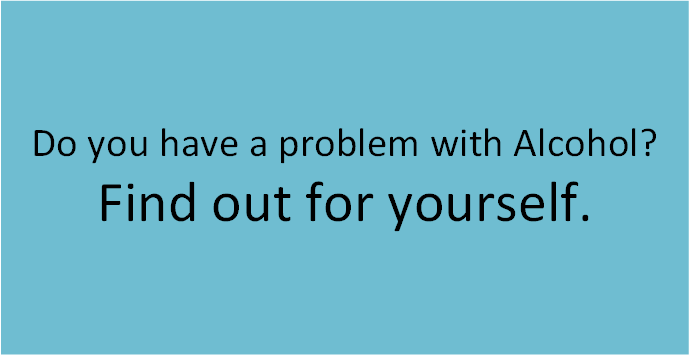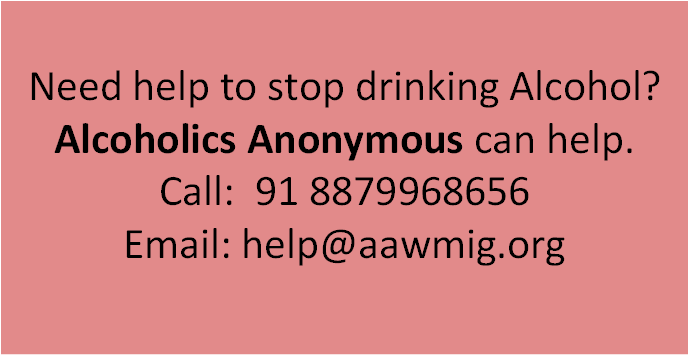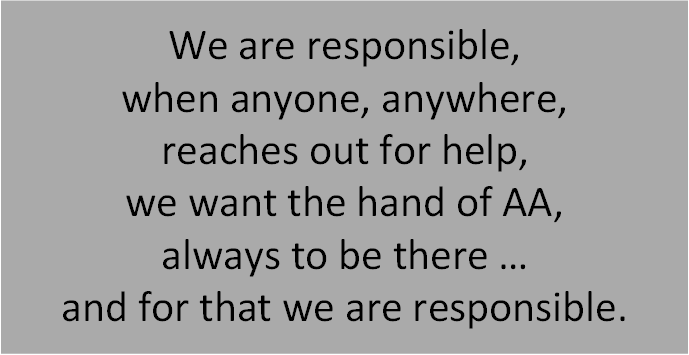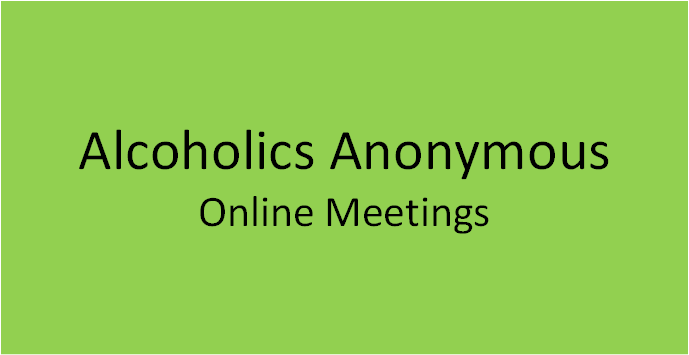It’s a phrase heard in A.A. meetings around the world. But where does it come from? Why do we say it? And should we keep doing so?
Surely, identification is an important concept in A.A. In fact, it could be considered the keystone of the program’s entire philosophy: one alcoholic helping another.
Yet, as a Fellowship with lots of suggestions, but no official “rules,” must a person declare, as many do when introducing themselves at meetings, that he or she is an alcoholic?
In A.A.’s formative years, cofounder Bill W. struggled with this question and often wrote about the dilemma facing newcomers as they grappled with their disease, often for the first time and often in a relatively “public” way at A.A. meetings.
Bill wrote convincingly about allowing the newcomer as much freedom as possible in deciding just how and when he or she might identify as an alcoholic, noting in a 1946 essay written for the Grapevine, titled “Who Is a Member of Alcoholics Anonymous?” — an article which later formed the foundation of Tradition Three: “That is why we judge the newcomer less and less. If alcohol is an uncontrollable problem to him and he wishes to do something about it, that is enough for us…. Nowadays, in most groups, he doesn’t even have to admit that he is an alcoholic. He can join A.A. on the mere suspicion that he may be one, that he may already show the fatal symptoms of our malady.”
Bill clarified further, as referred to in the “Twelve Traditions Illustrated” pamphlet in the section on Tradition Three: “Who determines whether or not newcomers qualify, whether they do want to stop drinking? Obviously nobody except the newcomers themselves; everybody else simply has to take their word for it. In fact, they don’t even have to say it aloud. And that’s fortunate for many of us who arrived at A.A. with only a halfhearted desire to stay sober. We are alive because the A.A. road stayed open to us.”
Bill rarely, if ever, introduced himself from the podium specifically as an alcoholic, and there is nothing in A.A. Conference-approved literature indicating how members should introduce themselves at A.A. meetings or whether it is necessary to do so at all.
Yet, in today’s A.A. environment, tense moments often follow in meetings when people don’t introduce themselves as alcoholics or, conversely, overidentify themselves with phrases like “I am a cross-addicted alcoholic,” or “I’m chemically dependent.”
Many A.A. members feel this second case is the more concerning, threatening our unity and singleness of purpose. “When I say at an A.A. function that ‘I’m a drug addict and an alcoholic’ or ‘I’m a cross-addicted alcoholic,’” wrote Rosemary P., a past delegate from Pittsford,New York, in an enduring article in the January 1990 Grapevine, “I am telling you that I’m a special kind of alky — my case of alcoholism is different from yours! I add an extra dimension to my disease — one that, because of our singleness of purpose, should not be addressed at an A.A. meeting. I have just cut our common bond in half and, more importantly, have diluted my own purpose for being there.”
So, where did this custom of self-identification come from and how did it etch itself so indelibly into the A.A. landscape of the 21st century?
Like many things in A.A., nobody is really sure just where it came from, and with only a few of the Fellowship’s early-timers left, not many are able to provide plausible theories, leaving little more than speculation to go on.
However, according to an early friend of A.A., the late Henrietta Seiberling, the expression dates back to meetings of A.A.’s forerunner, the Oxford Group Movement, which had its heyday in the early 1930s. Mrs. Seiberling, a nonalcoholic who had sought spiritual help in the Oxford Group meetings, was the person who introduced Bill W. to A.A.’s other cofounder, Dr. Bob, who was then struggling to deal with his drinking by attending Oxford Group meetings in Akron.
At small meetings, the members knew one another and didn’t need to identify themselves. But in the large “public” meetings, where there was “witnessing” along the lines of an A.A. talk today, personal identification became necessary. Chances are that someone at some time said, “I am an alcoholic,” but Mrs. Seiberling couldn’t be sure. Nor did she remember that the phrase was used at early A.A. meetings in Akron, before publication of the Big Book.
One early New York A.A. does recall hearing the expression, however, sometime after World War II, in 1945 or 1946; and it is a matter of record that in 1947 a documentary film entitled “I Am an Alcoholic” was produced by RKO Pathe, lending further credence to the notion that the phrase was recognizable in recovery circles even then.
Growing from there, it has now become an almost obligatory part of the lexicon of recovery and, with its various alternatives and self-revelatory permutations, a somewhat controversial way of introducing oneself at meetings.
Today, there are many who feel that resolution of the conflict they feel when members introduce themselves as “addicts” or with some other categorization beyond simply “alcoholic,” lies within the Fellowship. Suggested Rosemary P., “Isn’t it the responsibility of each of us to keep our program intact, to pass it on to the newcomer as it was given to us? Importantly, can we do this withpatient explanation, tolerance toward differences — and more patient explanation? I believe we can, through committed sponsorship, strong home groups and active service. That way, our new members will learn how to be a part of A.A., not a fragment of it.”
Others feel it is important to be honest and reflective of “who they really are” in their introductions at meetings, while many feel it is important to separate our issues and take them individually to the programs designed to address them: Narcotics Anonymous for drug addiction; Overeaters Anonymous for addiction to food, and so on. And still others feel that it is less important how we identify ourselves, either as “addicts” or “alcoholics,” and offer an introduction at meetings simply as “a member of A.A.”
Finding a balance among these approaches is an ongoing exercise in humility, trust and acceptance within the Fellowship, as members seek to be inclusive yet cognizant of the singular bonds of alcoholism that keep us all connected.
As expressed in the Big Book, in the Chapter “Into Action,” “We have entered the world of the Spirit. Our next function is to grow in understanding and effectiveness.This is not an overnight matter. It should continue for our lifetime. Continue to watch for selfishness, dishonesty, resentment, and fear. When these crop up, we ask God at once to remove them. We discuss them with someone immediately and make amends quickly if we have harmed anyone. Then we resolutely turn our thoughts to someone we can help. Love and tolerance of others is our code.”
As published in News and Notes from the General Service Office of A.A. ® Box 459 Vol. 58, No. 1 / Spring 2012www.aa.org




